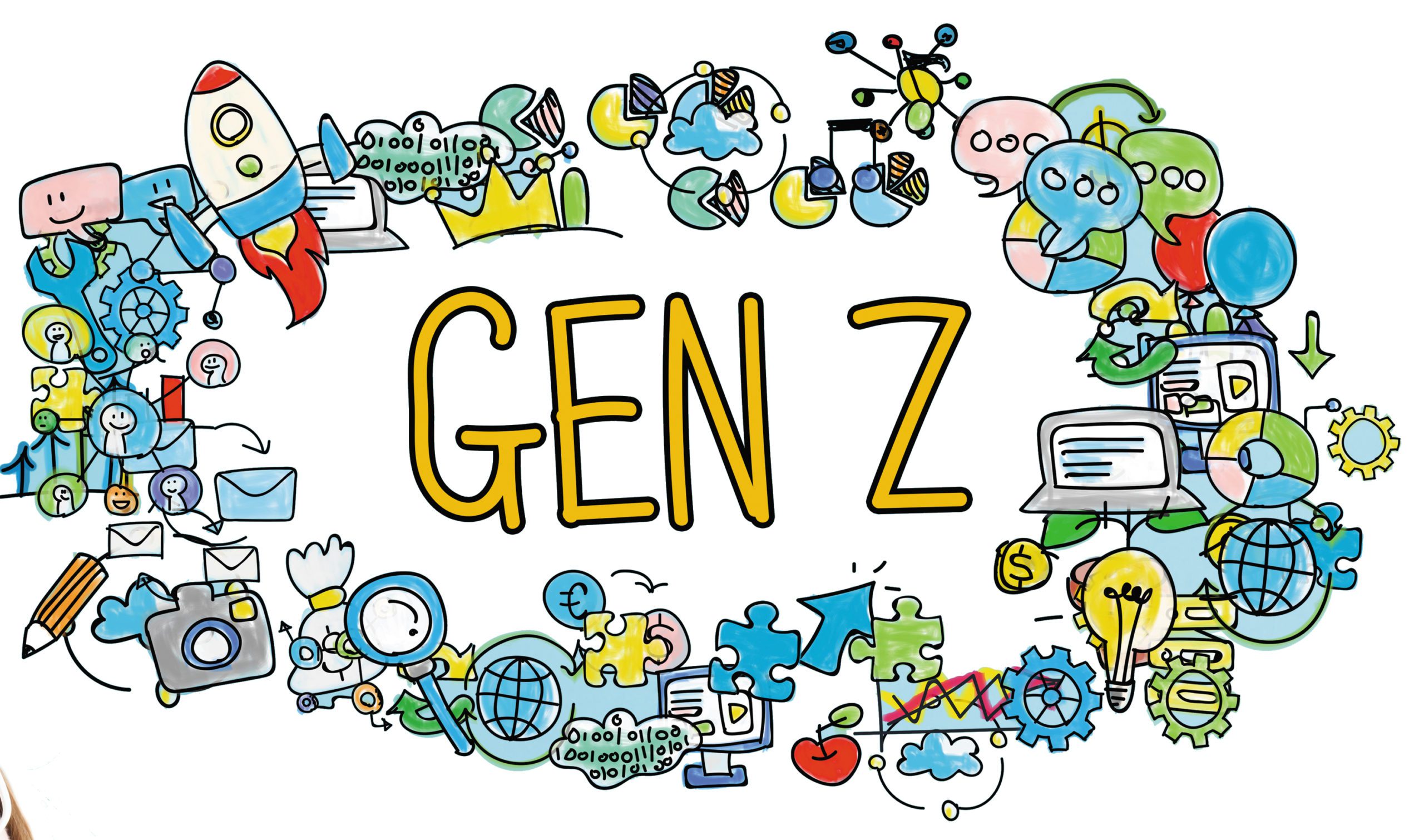Typically born between 1997 and 2012, (aged between 12 to 27), Gen Z brings unique characteristics, values, and expectations that require a shift in traditional recruitment practices. In this article, we’re focusing on the latter end of Gen Z, the ‘Gen Z’ers’ who are typically finishing University or kick-starting their ambitious careers. This article explores the effective strategies for recruiting Gen Z talent and ensuring their long-term engagement and retention at YOUR helm.
Understanding Gen Z Characteristics
A report found that it’s expected that generation Z will make up 27% of the working population by 2025 and by 2030, the Gen Z workforce is projected to triple, making 30 percent of the global workforce.
To tailor recruitment strategies effectively, it’s essential to understand what distinguishes Gen Z from previous generations. Gen Z is known for being highly tech-savvy, having grown up with the internet, smartphones, and social media. They prioritise diversity, inclusion, and sustainability, seeking employers whose values align with their own. This generation places a strong emphasis on work-life balance and mental health. While many Gen Z individuals have an entrepreneurial spirit, they also seek stable and secure job opportunities. Additionally, they have a strong desire for personal and professional growth through continuous learning. Ultimately, they’re here to hit the ground running and are said to be the most ambitious generation yet!
Leveraging Technology and Social Media
A significant majority of Gen-Z express a keen interest in engaging with state-of-the-art technology, with 91% indicating that technological factors strongly influence their job decisions compared to other employment offers. Studies reveal that while this generation enters the workforce with less prior experience than predecessors, they are notably dedicated to personal growth and advancing their careers, a study shown.
Given their digital fluency, reaching Gen Z requires leveraging technology and social media platforms to secure the next generation of talent. Companies should engage with Gen Z on platforms they love, such as Instagram, TikTok, and LinkedIn, using these channels to share job postings, company culture content, and employee testimonials. Implementing stream lined and virtual interview processes is a must to resonate with these tech-savvy candidates and keeping them engaged is a must when wanting to hire Gen Z. You may also wish to rethink your method of comms with the Gen Zeers, an email is okay, but a text message may work better for them.
Highlighting Company Values and Culture
Gen Z candidates are particularly attuned to a company’s values and culture. Employers should highlight their core values demonstrating a commitment to equality, diversity, and inclusion (EDI) through tangible, meaningful actions and transparent reporting, that isn’t just a box ticking exercise for firms. Highlighting employee resource groups, diversity initiatives, and inclusive policies can attract Gen Z talent. Additionally, emphasising your company’s efforts in corporate social responsibility, sustainability and environmental issues by showcasing projects, goals, and initiatives is crucial. A report shown a breakdown of equality and inclusion responses, where Gen Z would rather see pay distributed fairly across the workplace than to receive extra individual pay for extra effort
Emphasizing Career Development Opportunities
Gen Z seeks employers who invest in their growth and development. They want to hit the ground running and they want YOUR job! Offering training programs, mentorship opportunities, and clear pathways for career advancement is essential. Promote opportunities for upskilling and reskilling to keep their skills relevant, and provide a transparent career progression framework with 57% of Gen Z respondents in the Workforce Institute report stating that they expect to be promoted at least once a year. Gen Z wants to see how they can grow within the company and what steps they need to take to advance. It’s too much effort for them to move companies and typically are more loyal than other generations in the place.
A report from 4,093 responded shows that the top three job factors that Gen Z look for in the workplace are, supportive leadership, a positive relationship at work and flexibility, with pay and location being at the bottom of the most desired workplace factors.
Focusing on Work-Life Balance and Well-being
The 2023 Randstad Workmonitor Report showed that four out of ten Gen Zers said they wouldn't accept a job if it didn't provide flexibility around where they work, while 46% said they also wanted to maintain flexibility over working hours. To attract and retain Gen Z talent, companies must prioritise and promote work-life balance and well-being. Offering options for remote work, flexible hours, and compressed workweeks can accommodate their desire for balance. Implementing wellness initiatives that promote physical and mental health, such as mental health days, wellness stipends, fitness programs, and access to counseling services, is also important. Most people that fall into this category like to volunteer, so allowing this freedom and flexibility in the workplace could be a game changer for them.
Streamlining the Application Process
A study quoted in HR News said, Poor hiring processes cause 75% of Gen Z to abandon promising job applications. Gen Z really aren't that complex so a streamlined and user-friendly application process is crucial for keeping them engaged. Ensuring that the application process is optimized for mobile devices is essential, as Gen Z is accustomed to doing everything on their phones. Reducing the complexity and length of the application process is also important, as long and cumbersome forms can deter the generations of candidates from completing their applications. They want it to be as simple as possible and want it from the comfort of their own home while wearing their ankle socks and gym leggings.
Offering Competitive Compensation and Benefits
According to 2022 research by workplace training company TalentLMs, 82% of Gen Zers surveyed want mental health days, 77% consider it important that their company supports diversity, equity and inclusion efforts, and 74% would opt for either hybrid or totally remote work. Competitive compensation and innovative benefits are essential to attract Gen Z. Being transparent about compensation packages and benefits can build trust and set realistic expectations. Including benefits that appeal to Gen Z, such as student loan assistance, mental health support, and wellness stipends, can also attract this generation. Highlighting perks that go beyond the standard offerings is crucial, you’ve got to be in it to win with Gen Z, they have options!
Fostering a Collaborative and Inclusive Environment
Creating an environment where Gen Z can thrive involves fostering collaboration and inclusivity. Using modern collaboration tools to facilitate teamwork and communication can enhance productivity and connection. Tools such as Trello, Monday.com and many other techy platforms will entice Gen Z, long gone is the paper and pen for these kids! Promoting leadership practices that value diverse perspectives and encourage open dialogue is also important. Providing training for managers on inclusive practices and cultural competence can help create an inclusive environment where they can thrive.
Adapting recruitment strategies to meet the unique needs and preferences of Gen Z is not just about attracting talent; it’s about creating an environment where they can thrive and contribute meaningfully. By leveraging technology, emphasising values and culture, focusing on career development and well-being, and offering competitive benefits, companies can attract and retain Gen Z talent effectively.
As Gen Z continues to enter the workforce, businesses that proactively adjust their recruitment and retention strategies will not only draw top talent but also build a dynamic, innovative, and future-ready workforce. The investment in understanding and meeting the needs of Gen Z will pay dividends in the form of engaged, loyal, and high-performing employees who are poised to drive the company’s success in the years to come, albeit from home!
To find out more about Kingston Barnes visit: www.kingstonbarnes.com






